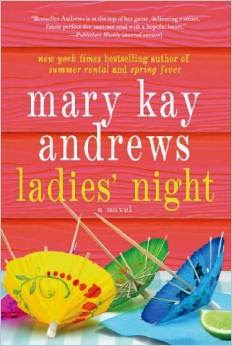Tessa Arlen Shares What Inspires Her and a Giveaway
 |
| Photo by Chris Arlen |
Tessa Arlen is visiting Writer's Corner for her new book in the Lady Montfort Mysteries series Death of an Unsung Hero. I have one copy up for grabs. Giveaway will be open to US only. Please follow the link to rafflecopter.
What inspired you to begin writing
mysteries? Was the Lady Montfort Mysteries a series you always wanted to write?
Ever since I read Conan Doyle’s Sherlock
Holmes when I was fourteen I wanted to write mysteries. I particularly enjoyed
the Golden Age mystery writers: Dorothy L. Sayers Agatha Christie, Josephine
Tey, Ngaio Marsh and Margery Allingham often referred to as the Queens of Crime
who wrote detective fiction between the wars. And it wasn’t until I started to
write mystery that I discovered that they considered their whodunits as a game
for both author and reader: the elements of the mystery must be clearly
presented but in such a way as to arouse curiosity, to entice the reader to try
and guess the outcome and if they were as clever as the author, to guess it
before the denouement.
I also wanted to write about the
great country houses of England with their enormous and gorgeous gardens in the
1910s, where life for the privileged few was idyllic thanks to their servants,
their money and the rigidity of the class system. The ‘have-nots’ of course had
a much grimmer time of it. My two amateur sleuths in the Lady Montfort series
are from opposite ends of the class system and struggle with issues in context
with their time and place in history. Clementine Elizabeth Talbot the Countess
of Montfort is from of one of the oldest families in England and her
housekeeper, Edith Jackson, was raised in a parish orphanage. Together these
two remarkable women step lightly across the great class divide of Edwardian
Britain to unite their considerable talents in clandestine inquiries that take
them into all walks of life in the new 20th century when even the status quo was
on the cusp of great change.
You have wonderful leading ladies in
Lady Montfort and her no-nonsense housekeeper, Mrs. Jackson. Are there any
supporting characters that came easily to you in the writing process?
I am particularly fond of my villains:
I think Teddy Mallory in Death of a
Dishonorable Gentleman is a perfect example of an Edwardian rotten apple
and I had great fun writing him. I write a short biography for my murderers: their
physical appearance, idiosyncrasies, their likes and dislikes. I really enjoy enhancing
the more positive aspects of their characters to camouflage their evil side,
and then revealing little glimpses of their particular flaws.
But writing Clementine’s children
came really easily to me, because I have three of my own –now grown-up, who
gave me tons of fodder. In Death of an
Unsung Hero my favorite supporting character is Lady Montfort’s daughter
Althea, who has skillfully avoided marriage to a ‘man of substance and
background with a bank account to match’ and has managed to engineer all sorts
of opportunities for world travel. In the first three books she is a distant
figure always off on another jaunt, but now that Britain is at war she is
marooned on the family estate and is trying her best to run the local chapter
of the Women’s Land Army or the Land Girls as they were called. The WLA was an
organization tasked with providing farmers with labor –terribly important to an
island cut off by the German U-boat blockade from importing food from America
and Canada. Althea has to deal with farmers who don’t like the idea of city
girls, or girls at all, working on their land. At the same time she is causing
her mother all sorts of headaches as she is particularly independent in spirit and
often irritated by the petty convention that young women of that time had to
put up with. Althea was great fun to write she is bright, generous and sunny
tempered but determined always to have a say in her world, to be effective and
to contribute in a meaningful way. Althea could in fact be any one of my three
daughters! There are some great scenes between her and her mother on the
business of chaperones, and some lively moments with her and her brother when
they decide to help their mother and Mrs. Jackson with some sleuthing. I found
myself sympathizing with poor Clementine as she tried to deal with her
independent daughter and her son, Harry, temporarily invalided out of the war,
both of whom would rather be anywhere than on their father’s country estate.
The officers are
suffering from shell-shock (PTSD), among other things, when they arrive at the
auxiliary hospital. How much research did you have to do regarding how PTSD was
treated in the early 20th century?




Comments
Post a Comment